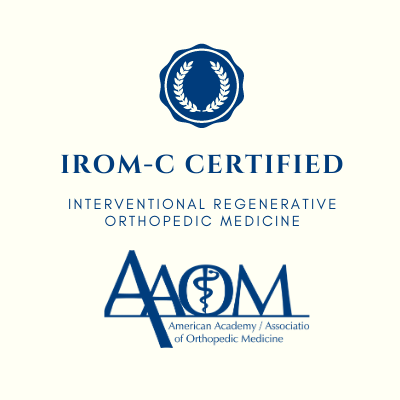Using evidence-based methods pioneered by Dr. William Walsh, Dr. Maria Hopp and the TLC team are working to address the causes of mental health issues and treat them naturally.
Did you know, 1 in 6 adults experience a common mental health problem such as anxiety or depression?
Chances are, you or someone you know are part of that statistic. These issues are often life-altering and for some individuals they can be completely debilitating. Utilizing a unique approach, we are looking to identify the underlying biochemical imbalances that may contribute to mental health issues. Along with Dr. Walsh, we dream of the day when “psychiatric medicines may no longer be necessary.”
Millions of adults suffer from mental health issues including depression, anxiety, schizophrenia, bipolar disorder and ADHD among others. Conventional medicine treats these common issues with a variety of medications, some with significant side effects. Our approach is different and involves a comprehensive medical history, specialized lab testing and supplementation to treat biochemical imbalances and support proper brain chemistry.
IMPORTANT NOTE: You should never stop any medications without first consulting with a physician. The process of decreasing medications is a careful process and must be done slowly and deliberately, under the supervision of a specialized medical professional.
The Walsh Approach
Dr. William Walsh and Dr. Carl Pfeiffer began research on mental health issues starting in the 1980s. Their research was primarily performed studying prison populations to evaluate for potential contributing factors to mental health conditions. They asked a myriad of questions to each patient with the goal of determining patterns and identifying categories these patients may fall into.
The result of their research was the establishment of a database of greater than 10,000 patients. They discovered that greater than 80% of patients fell into one of the following categories: folate deficiency (what Dr. Walsh calls overmethylation), undermethylation, copper overload, zinc deficiency or pyrrole disorder. The treatment protocol to evaluate for these issues per the Walsh Research Institute consists of: “a medical history, specialized lab testing, diagnosis of chemical imbalance and individualized treatment aimed at normalizing brain chemistry.”
For more information about these categories, please visit the Walsh Research Institute Website: http://www.walshinstitute.org/biochemical-individuality–nutrition.html
Biochemical Imbalances And Why They Matter
There are many contributing factors to mental health issues, and a number of individuals suffering from these conditions are genetically predisposed to various biochemical imbalances. Our brains are “factories” of chemicals, churning out neurotransmitters such as serotonin, dopamine and norepinephrine. When there is a defect of some sort in the machinery of the brain, there can be many varying results. As Dr. Walsh says, “If the brain receives improper amounts of these nutrient building blocks, we can expect serious problems with our neurotransmitters.”
Many mental health issues can be attributed to imbalances, both nutrient levels that are too high or too low. Some of the most common nutrients that are too high, or are in “overload” are copper, iron, folic acid, calcium, methionine, manganese, choline and omega-6 fatty acids. Imbalances of nutrients in the body can have significant effects on the body including, but not limited to: altering the expression of neurotransmitters, limiting the body’s ability to fight toxins and disrupting proper gene expression.
The Treatment Model
- Medical History – At TLC, when we ask you to start your story at the beginning, we mean the very beginning! Yes, the events that occurred to you even when you were born or in childhood can have lasting impacts on you into adulthood. We will review a comprehensive history with you, starting at the beginning and asking many of the same questions that Dr. Walsh did when doing his initial research. Your history and various attributes will give clues about your biochemical make-up, and where there may be imbalances.
- Specialized Lab Testing – Your blood will be tested for various nutrients and vitamins to determine any imbalances, both levels that are too high or too low.
- Diagnosis of Chemical Imbalance – Based on the results of your lab testing, combined with your history and attributes, Dr. Hopp will determine which category or categories you may fall into. You will then receive an individualized treatment plan.
- Individualized Treatment – After reviewing your medical history, studying your attributes and analyzing your lab results, Dr. Hopp will design a specific, long-term supplement regimen designed just for you, personally tailored to meet your needs. These supplements are all natural chemicals that your body already produces, so there are fewer side effects.
This initial treatment program occurs over the course of 3-4 visits, though frequency of appointments may vary depending on each patient.
Your biochemistry is as unique as your fingerprint. There is no “one size fits all” model, so why does medicine act that way much of the time? Here at TLC, we know that you have specific and individual needs, and we are committed to providing the utmost quality of care to you. We will listen intently and treat you intentionally using the best methods that evidence-based medicine has to offer.
We think there is a better way to address mental health concerns. If you’d like to learn more about your biochemistry and work to improve your symptoms, call our office at 720-351-2411 to set up an appointment!
If you are feeling like harming yourself or others, call 911 or the National Suicide Prevention Lifeline at
1-800-273-8255. These resources are free and are available 24 hours a day.














